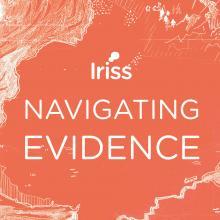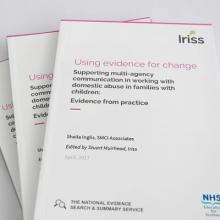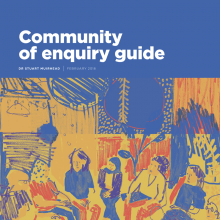At times of change and uncertainty, evidence becomes very important to build confidence about how to put policy into practice. Although some relevant evidence exists, as it becomes the mainstream mechanism fordelivering social care, self-directed support (SDS) will bring significant new challenges and evidence needs.
In this context, Iriss initiated a project to explore evidence on SDS and how gaps might be addressed through co-production. The focus was primarily on what evidence was needed rather than what was already available, although literature reviews featured at a couple of points. The project was genuinely experimental. As a co-produced endeavour, exactly how it would be shaped and unfold could not be foreseen by any one participant. It was impossible to say how - or even if - it would work. This necessitated a degree of comfort with ambiguity and uncertainty, and a proactive, constructive approach from all concerned.
This report describes and analyses the activities and findings of the Self-directed Support: Evidence Explorers project, and provides links to key outputs. It begins with an overview of the case for strengthening the evidence-base for self-directed support (SDS) and explains how this was addressed by the project. An overview of the project, its purposes, outcomes, participants, process and outputs, is then provided. The report then explores the significant amount of learning acquired about the nature of evidence and of co-production. Throughout, key findings and their implications are highlighted. Finally, the success of the project
is evaluated and next steps outlined.
The project was initiated by Iriss and developed in co-production with a range of partners. It ran from January until November 2012.
There is a project report (PDF) and a summary report (PDF), hardcopies of the summary report are available to order.
SDS Evidence Explorers blog.




